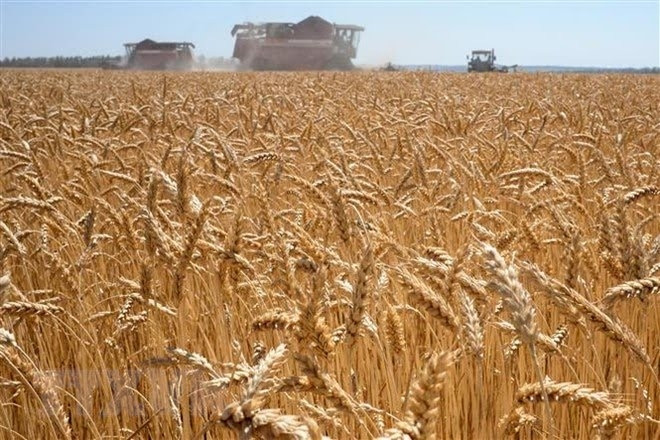Shipping activities from Russia and Ukraine, which together account for about 25% of global wheat exports and 16% of global corn exports, fell sharply, causing grain prices to skyrocket on the global market. Agribusiness executives said consumers around the world are feeling the impact of the Ukraine crisis due to soaring food prices and significant disruptions to agricultural supply chains.
According to the International Agricultural Development Fund (IFAD) of the United Nations (UN), the conflict in Ukraine has caused food prices to skyrocket, especially in some of the world's poorest countries, threatening to trigger a tragedy of poverty. The World Food Programme (WFP) also warned that the influx of people and the disruption of spring planting in Ukraine may push world hunger to catastrophic levels. According to the WEF, 44 million people in 38 countries are on the brink of starvation. According to the Food and Agriculture Organisation of the United Nations (FAO), up to 30% of the crop area in Ukraine has been either not harvested or abandoned this year due to the conflict.
As one of the regions hardest hit by inflation and rising food prices, the European Union (EU) is planning to allocate 500 million EUR to support farmers and allow them to grow crops on wasteland to control the sharp increase in food prices as well as the possibility of supply shortage. According to the proposal of the European Commission (EC), the beneficiaries are those most affected by the Ukraine crisis. The EU is also planning to allow farmers to temporarily grow crops on around 6% of the agricultural land that has been set aside to promote biodiversity.
In addition, the EU will also assist Member States to take advantage of possibilities to reduce the use of biofuels in the transport sector, thereby reducing pressure on food and feed supplies. Notably, the EU has proposed an emergency assistance programme worth 300 million EUR for Ukraine to help its farmers grow corn, sunflowers and wheat. Ukraine is currently the world's leading exporter of sunflower oil, accounting for more than 50% of the global turnover, and is also a major exporter of wheat, barley and corn.
The EU currently imports 50% of its corn from Ukraine and 30% of its fertiliser from Russia. Russian President Vladimir Putin has warned that Western countries blocking Russia's fertiliser exports will lead to higher global food prices. The Russian Ministry of Trade and Industry has asked fertiliser companies across the country to temporarily stop exporting this March. Fertiliser prices rising rapidly beyond farmers' ability to pay may contribute to the risk of a global food crisis.
In the US, bipartisan senators have recently called on the US to increase emergency food aid to prevent the risk of tens of millions of people from starvation, including millions of children. The lawmakers also sought to lobby the US Congress to add billions of dollars in the framework of humanitarian relief and support bills for COVID-19...
In the context of rising concerns about inflation and rising food prices, many countries and regions have “scenarios” to deal with. However, this is a difficult problem, especially when the supply chain, which has was already heavily affected by the COVID-19 pandemic, has been “dealt an additional blow” from instability and conflict. Global food security remains a major challenge.
















